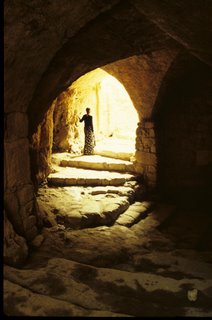Peace?
After getting back from
“It is very bad,” Malik replied shaking his head. “Both hotels, empty,” he finished, using a sweeping hand gesture to emphasize the word “empty.” Dan and I nodded our heads in sympathetic concern.
“The travel advisories, nobody is coming,” Malik continued. “People are canceling trips.”
“Yes,” Dan replied, “This should be the high season. This place should be full of French tourists running around in orange pants and tank tops on winter vacation.”
“I know I know,” Malik replied despondently. “And what does this President do? He goes and builds an international airport in Hambantota District,” he finished with disgust.
“Really!” Dan replied, astounded, “That’s his home district isn’t it?”
“Yes,” confirmed Malik, “and he wants to make it a major port down there also.”
“Simple clansmanship, that’s all that is,” I remarked. “Does it make sense to have a major airport in that area anyway?” I asked, never having heard of Hambantota before.
“No,” Malik replied decisively. “There is nothing there. He wants the airport where there is already a small airport, very near Yala and that is all.”
“It’s really not the best place for an airport to provide access to the south,” Dan explained. “It’s near the Yala park, but it’s not even that close to the beaches, it’s too far east.”
“That’s crazy,” I replied.
“Meanwhile there are no tourists at all because of this war,” Malik added.
“Do you think that either the government or the LTTE wants peace?” I asked Malik.
“No,” He replied immediately. “They do not want peace,” he replied, frowning.
After Dan and Malik discussed past government scandals that were hard for me to follow, we said our goodbyes and headed home. Walking up the final hill to our house we passed another hotel owner standing on the balcony of his hotel. “Hello Tony,” Dan greeted him. “What do you think of the new airport?” he asked. Tony was a short Muslim man who always looked very dissatisfied. When he heard Dan’s question about the airport his facial features contracted into a level of disgust I had not yet witnessed in him.
“This is crazy,” he started, narrowing his eyes. “This airport in Hambantota. If there should be a new international airport then it should be here, in
“That’s a good point,” I replied, I had not thought of it before.
“Yes, the airport should be here,” Tony repeated.
“How is business?” Dan asked.
“Terrible,” Tony answered, pursing his lips. “but I am lucky,” he continued. I worked in
“That’s very good,” I confirmed. “The tourists will always come back to
“Yes, if they can ever find peace,” Tony replied.
“Do you think that the government really wants peace?” I asked. Tony paused for a few moments, “No,” he replied. “They do not,” he continued, wrinkling his nose and staring off toward the
When I googled the new airport I learned that it would be a 125 million dollar project slated for completion in 2009. The proposed site was a current bird sanctuary. While I was on the internet I decided to try and unravel a political cartoon I had seen the in the newspaper that weekend. The central image was a wounded tiger in a hospital bed with his arm in a sling. The acronym “LTTE” was drawn in on the bandage across his forehead. A man stood next to the bed with his back to the viewer. He held a bouquet of flowers behind his back with the acronym “PTA” drawn on the wrapping of the flowers. The man was passing the flowers to the tiger who reached for them with his good arm. I googled “PTA
Once I read about the PTA I understood the cartoon. If the Rajapaksa government revived civil rights abuses against Tamil citizens, such actions would only fuel the LTTE’s mandate to defend the Tamil people. I knew from frequent visits to the Tamilnation.org site that the LTTE styles itself as the sole representative of the Tamil people, and they seek to secure a safe homeland for the Tamil people. Tamils would then see the LTTE as a form of protection. Additionally, if
After reading through internet pages for most of the afternoon I turned to Dan at his computer across the room behind me and said, “I’ve got it, that PTA thing is the Prevention of Terrorist Act, now I get that cartoon we saw in the paper.”
“Oh yeah, I remember that,” he replied. “When I was here as an undergrad in 1997 there was a Tamil girl raised in




0 Comments:
Post a Comment
<< Home